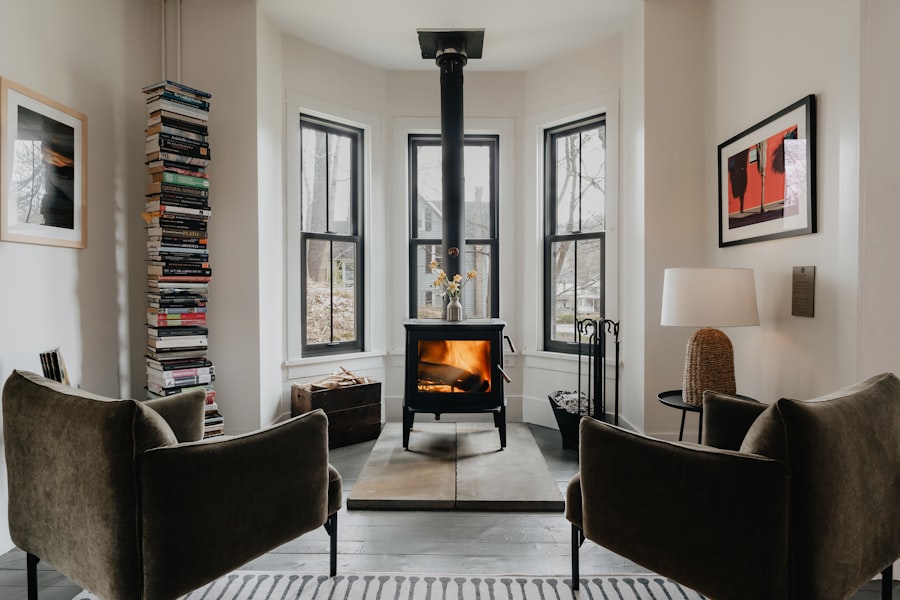Chickens, like all living creatures, have specific requirements for optimal health and well-being. These include a safe and comfortable environment, access to clean food and water, protection from predators and harsh weather, and sufficient space for movement and natural behaviors. Chickens also need warmth during cold periods to maintain their body temperature.
Temperature regulation is crucial for chickens, as they are susceptible to cold stress. Providing a warm, insulated shelter is essential, particularly in winter. Proper ventilation is also necessary to maintain air quality and prevent the accumulation of harmful gases.
Regular monitoring of chicken behavior and health is important to ensure their needs are met and to address any potential issues promptly. By understanding and fulfilling these requirements, chicken owners can create an environment that promotes the health and happiness of their flock.
Table of Contents
- 1 Providing adequate shelter and insulation
- 2 Using heat lamps and heaters safely
- 3 Ensuring proper ventilation
- 4 Providing extra bedding and nesting materials
- 5 Offering warm and nutritious food and water
- 6 Monitoring your chickens’ behavior and health
- 7 FAQs
- 7.1 What are some ways to keep chickens warm in cold weather?
- 7.2 What temperature is too cold for chickens?
- 7.3 How can I insulate my chicken coop to keep it warm?
- 7.4 Are there any specific breeds of chickens that are better suited for cold weather?
- 7.5 What should I feed my chickens to help keep them warm in cold weather?
Key Takeaways
- Understanding the needs of your chickens is crucial for their well-being and productivity.
- Providing adequate shelter and insulation is essential to protect chickens from harsh weather conditions.
- Using heat lamps and heaters safely can help maintain a comfortable temperature for your chickens without posing a fire hazard.
- Ensuring proper ventilation is important to prevent moisture buildup and maintain good air quality in the coop.
- Providing extra bedding and nesting materials can help keep chickens warm and comfortable during cold weather.
- Offering warm and nutritious food and water is essential to keep chickens healthy and hydrated in low temperatures.
- Monitoring your chickens’ behavior and health is important to identify any signs of distress or illness during cold weather.
Providing adequate shelter and insulation
Insulation and Ventilation
Insulating the coop with materials such as straw, hay, or foam boards can help retain heat and keep the chickens warm during cold weather. Additionally, providing a roosting area off the ground can help prevent frostbite on their feet.
Safety and Security
In addition to insulation, it is important to ensure that the coop is secure from predators such as foxes, raccoons, and birds of prey. Installing sturdy locks on doors and windows, using hardware cloth instead of chicken wire, and adding predator-proofing measures such as electric fencing can help keep your chickens safe from harm.
Creating a Comfortable Environment
By providing adequate shelter and insulation, you can create a comfortable and secure environment for your chickens to thrive.
Using heat lamps and heaters safely

During colder months, heat lamps and heaters can be used to provide additional warmth for your chickens. However, it is important to use these devices safely to prevent fires and injuries. When using heat lamps, it is crucial to secure them properly to prevent them from falling and causing a fire.
Additionally, using heat lamps with a guard or cage can help prevent direct contact with the chickens and reduce the risk of burns. It is also important to use heaters specifically designed for use in chicken coops, as they are equipped with safety features such as automatic shut-off in case of overheating or tipping over. Placing heaters in a safe location away from flammable materials and ensuring that cords are not chewed by the chickens can help prevent accidents.
Regularly inspecting and maintaining heat lamps and heaters can help ensure their safe and effective use. By using heat lamps and heaters safely, you can provide your chickens with the warmth they need without compromising their safety.
Ensuring proper ventilation
Proper ventilation is essential for maintaining good air quality in the chicken coop and preventing the buildup of harmful gases such as ammonia. Adequate ventilation helps remove excess moisture, odors, and airborne pathogens, creating a healthier environment for your chickens. It also helps regulate temperature and prevent condensation, which can lead to respiratory issues in chickens.
To ensure proper ventilation, it is important to provide adequate openings for fresh air to enter the coop while allowing stale air to escape. This can be achieved through windows, vents, or adjustable openings that can be closed during extreme weather conditions. It is important to strike a balance between providing enough ventilation without creating drafts that can cause cold stress in chickens.
Regularly monitoring air quality and adjusting ventilation as needed can help maintain a comfortable and healthy environment for your flock. By ensuring proper ventilation, you can help prevent respiratory issues and create a conducive living space for your chickens.
Providing extra bedding and nesting materials
During colder months, providing extra bedding and nesting materials can help keep your chickens warm and comfortable. Bedding such as straw, hay, or wood shavings can provide insulation from the cold ground and help retain heat in the coop. Nesting materials such as shredded paper, dried grass, or pine shavings can provide a cozy environment for hens to lay their eggs.
It is important to regularly clean and replace bedding to prevent the buildup of moisture and odors, which can lead to respiratory issues in chickens. Additionally, providing nesting boxes filled with clean and dry materials can encourage hens to lay eggs in a safe and comfortable environment. By providing extra bedding and nesting materials, you can help keep your chickens warm, comfortable, and healthy during colder months.
Offering warm and nutritious food and water

Nutritious Food for Cold Weather
Feeding your chickens high-quality feed with added protein can help provide the energy they need to stay warm. Additionally, offering warm treats such as cooked grains or vegetables can help raise their body temperature during cold weather.
Access to Fresh Water
It is also essential to ensure that your chickens have access to fresh water at all times. In colder temperatures, water can freeze quickly, so using heated waterers or regularly replacing frozen water with warm water can help prevent dehydration in chickens.
Overall Health and Comfort
Providing warm and nutritious food and water can help ensure that your chickens stay healthy and comfortable during the colder months. By taking these steps, you can help your chickens thrive even in the coldest of temperatures.
Monitoring your chickens’ behavior and health
Regularly monitoring your chickens’ behavior and health is essential for ensuring that their needs are being met and addressing any issues that may arise. Observing their activity level, appetite, egg production, and overall demeanor can help you identify any signs of distress or illness. Additionally, checking for any injuries or abnormalities in their appearance can help you address potential health issues early on.
It is important to handle your chickens gently and regularly inspect them for signs of parasites or disease. Providing regular health check-ups by a veterinarian can also help ensure that your flock remains healthy and free from illness. By monitoring your chickens’ behavior and health regularly, you can provide them with the care and attention they need to thrive.
In conclusion, understanding the needs of your chickens is crucial for providing proper care and ensuring their health and well-being. By providing adequate shelter and insulation, using heat lamps and heaters safely, ensuring proper ventilation, providing extra bedding and nesting materials, offering warm and nutritious food and water, and monitoring your chickens’ behavior and health regularly, you can create a conducive environment for your flock to live happy and healthy lives. Taking the time to understand and address the specific needs of your chickens will not only benefit them but also provide you with the joy of raising healthy and contented birds.
If you’re looking for more tips on keeping your chickens warm, you might want to check out this article on choosing the right chicken coop in Grand Island, NE. It offers valuable insights on how to create a cozy and insulated space for your feathered friends during the colder months.
FAQs
What are some ways to keep chickens warm in cold weather?
Some ways to keep chickens warm in cold weather include providing a well-insulated coop, using heat lamps or heated pads, and ensuring good ventilation while avoiding drafts.
What temperature is too cold for chickens?
Chickens can generally tolerate cold temperatures as long as they have a dry, draft-free shelter. However, temperatures below 0°F (-18°C) can be dangerous for chickens, especially if they are not acclimated to such extreme cold.
How can I insulate my chicken coop to keep it warm?
You can insulate your chicken coop by adding extra bedding, sealing any drafts, and using insulating materials such as foam board or straw bales. It’s important to ensure that the coop remains well-ventilated despite the insulation.
Are there any specific breeds of chickens that are better suited for cold weather?
Some chicken breeds, such as the Buff Orpington, Rhode Island Red, and Plymouth Rock, are known for their cold-hardiness and can better tolerate colder temperatures. However, proper care and shelter are still important for all chicken breeds in cold weather.
What should I feed my chickens to help keep them warm in cold weather?
Feeding your chickens a balanced diet that includes grains and high-energy foods can help them generate body heat to stay warm in cold weather. Additionally, providing access to fresh, unfrozen water is crucial for their overall health and warmth.
Meet Walter, the feathered-friend fanatic of Florida! Nestled in the sunshine state, Walter struts through life with his feathered companions, clucking his way to happiness. With a coop that’s fancier than a five-star hotel, he’s the Don Juan of the chicken world. When he’s not teaching his hens to do the cha-cha, you’ll find him in a heated debate with his prized rooster, Sir Clucks-a-Lot. Walter’s poultry passion is no yolk; he’s the sunny-side-up guy you never knew you needed in your flock of friends!







